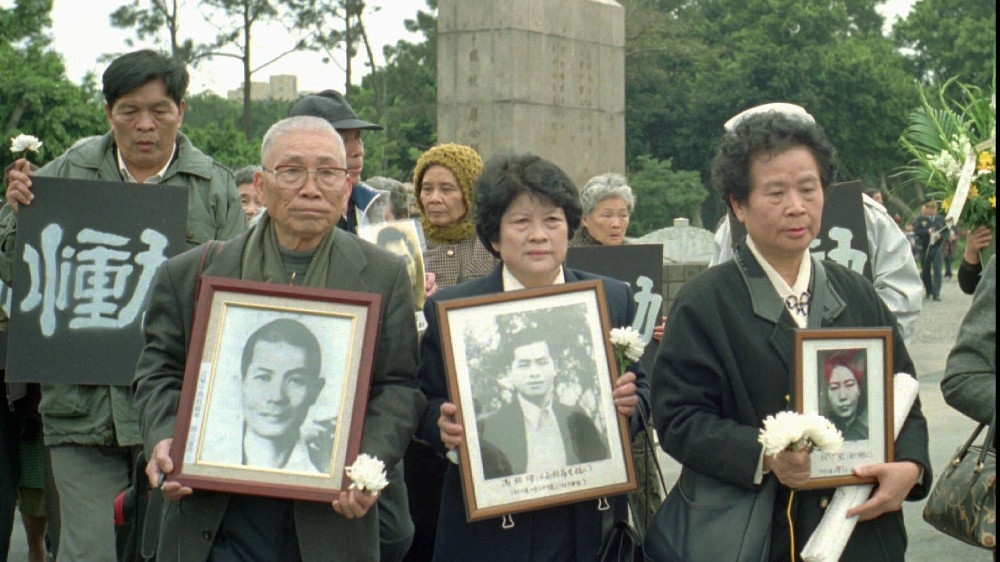Taiwan targets truth not justice as it investigates darker times
Justice commission modelled on bodies in South Africa and South America probes killings during years of martial law.

Taipei, Taiwan – In 1981, the body of Chen Wen-chen, a rising-star of mathematics on a visit home from the United States, was found on the campus of National Taiwan University the day after he had returned from overnight interrogation at the police headquarters.
Only this month did his family get official word that Chen had probably been killed by the secret police. Suspected deaths like Chen’s that took place in Taiwan during the island’s nearly 40 years of martial law would have been consigned to the dustbin of history – but not for an investigatory body tasked with ferreting out the facts.
Keep reading
list of 3 items‘Be my guest’: Taiwan’s Tsai Ing-wen woos online influencers
In shadow of coronavirus, China steps up manoeuvres near Taiwan
Modelled after truth and reconciliation commissions in Africa and South America, the Transitional Justice Commission was established in 2018 to redress human rights abuses and other atrocities before Taiwan became a democracy.
The commission’s probe covers the February 28 Incident – the 1947 bloody suppression of an uprising by native Taiwanese – and the White Terror, the martial law-era during the Kuomintang (KMT) regime of Chiang Kai-shek and his son Chiang Ching-kuo.
An electoral victory in 2016 gave the then-opposition Democratic Progressive Party (DPP) control of both executive and legislative branches for the first time since the suspension of martial law in 1987 allowing them to muscle through legislation to empower the commission and declassify politically-sensitive documents.
Yet, the commission’s work has been made all the more challenging by the fact that the KMT remains entrenched in the power structure, and holds sway as the second-largest party in the legislature.

“This shows both the efficacy and the dilemma of a truth commission,” said Jamie Rowen, a legal scholar who specialises in transitional justice at the University of Massachusetts, Amherst in the United States.
“There’ll be calls for criminal accountability but it’ll only make [the commission] even more politicised.”
Rowen thinks a “trade-off is likely” with the focus on truth rather than justice.
Truth over justice
Some of Taiwan’s earliest and most ardent advocates for transitional justice warned long ago of the potential risk. Political scientist Wu Naiteh of Academia Sinica wrote in a 2005 journal article that “there’re 10,000 victims but not a single perpetrator” had been named.
But it is scant comfort for those who have spent years clamouring for both truth and justice.
“Now that the government has determined that this is likely an assassination, but still no one is being held accountable,” Longson Chang of the Dr Chen Wen-chen Memorial Foundation told Al Jazeera. “We get it. This is an old case. For the family, this has offered no closure.”
|
|
So far, about 6,000 victims have been exonerated – but in name only.
Their criminal records remain because the passage of time has made retrials impracticable. All told, between 3,000 and 4,000 people were executed and 140,000 imprisoned during martial law.
On April 22, the commission was extended for another, probably final, year, but Rowen believes the truth-seeking will carry on in one form or another: “The commission is the beginning of a much longer process, as it should be.”
Despite, the hurdles, the KMT has played a part in the island’s act of reckoning.
In 1995, President Lee Teng-hui of KMT allowed political victims of the White Terror to stand for public office and receive pensions once again.
Two years into his first term, President Ma Ying-jeou apologised for his party’s role in the February 28 Incident. Ma also ordered the death notes that had been buried in the national archives to be returned to the victims’ families and preserved former detention and executive sites to house a human rights museum and memorials.
But a separate committee charged with confiscating the ill-gotten gains of the KMT, one of the world’s richest political parties, in order to compensate its victims has been mired in court challenges after it froze a substantial portion of the party’s assets.
‘Scab of history’
While other countries have been eager to ignore or censor previous atrocities – in mainland China, which claims Taiwan as its own, the 1989 Tiananmen Square massacre has been all but erased – the commission sets Taiwan apart in facing up to the darker corners of its past.

China was an early critic of the Transitional Justice Law, claiming investigations into Chiang’s rule was a way to cut the island’s ties with the mainland and seek independence for Taiwan.
Continuing cross-strait tension has rendered the contents of certain newly-declassified dossiers too politically sensitive to disclose, especially given some files contain the names of underground Communist agents.
Tsai Kuan-yu, 86, believes some of them were responsible for framing him.
In 1962, Tsai was convicted of conspiracy to overthrow the government on the flimsiest evidence – a handwritten slip which he said had been planted by his colleague.
Narrowly escaping the death sentence but having been locked up for more than 10 years, Tsai is convinced that only the truth can set him – and the island he calls home – free.
“Some people have said let’s not pick at the scab of history,” said Tsai.
“How we redress the wrongs perpetrated by our past leaders is critical to Taiwan’s continued democratisation.”